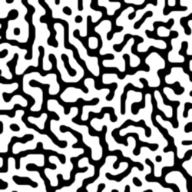Prove that for any integers m and n, if m is odd and n is odd, then mn is odd.?
2016-07-08 2:55 pm
回答 (4)
2016-07-08 3:04 pm
✔ 最佳答案
m is odd ... so m = 2a + 1n is odd ... so n = 2b + 1 ... where a and b are integers
mn = (2a + 1)(2b + 1) <<< expand
mn = 4ab + 2a + 2b + 1
mn = 2(2ab + a + b) + 1
2(2ab + a + b) is even (because 2 is a factor) thus
2(2ab + a + b) + 1 is odd
2016-07-08 3:11 pm
When m is an odd integer and n is also an odd integer,
let m = 2M + 1 and n = 2N + 1,
where M and N are integers.
mn = (2M + 1)(2 N + 1)
= 2 MN + 2M + 2N + 1
= 2 × (MN + M + N) + 1
For all integers M and N, 2 × (MN + M + N) must be an even integers.
Then, 2 × (MN + M + N) + 1 must be an odd integer.
Since mn = 2 × (MN + M + N) + 1, then mn must be an odd integer.
let m = 2M + 1 and n = 2N + 1,
where M and N are integers.
mn = (2M + 1)(2 N + 1)
= 2 MN + 2M + 2N + 1
= 2 × (MN + M + N) + 1
For all integers M and N, 2 × (MN + M + N) must be an even integers.
Then, 2 × (MN + M + N) + 1 must be an odd integer.
Since mn = 2 × (MN + M + N) + 1, then mn must be an odd integer.
2016-07-08 3:03 pm
m=2h+1, n=2k+1, some integers h,k, so
mn = (2h+1)(2k+1) = 4hk + 2h + 2k + 1 = 2(2hk + h + k) + 1 = even + 1 = odd
mn = (2h+1)(2k+1) = 4hk + 2h + 2k + 1 = 2(2hk + h + k) + 1 = even + 1 = odd
2016-07-08 3:02 pm
By the fundamental theorem of arithmetic, every integer greater than 1 is either a prime number, or can be written as the product of prime numbers. The smallest prime number, and the *only* even prime number, is 2. Any number that has 2 as one of its prime factors is even; any number that *does not* have 2 as one of its prime factors is odd.
Ergo, if m and n are odd, then neither m nor n has 2 as one of its prime factors. Multiplying the two numbers together will produce another number, mn, which *also* does not have 2 as one of its prime factors, and is therefore odd.
I hope that helps. Good luck!
Ergo, if m and n are odd, then neither m nor n has 2 as one of its prime factors. Multiplying the two numbers together will produce another number, mn, which *also* does not have 2 as one of its prime factors, and is therefore odd.
I hope that helps. Good luck!
收錄日期: 2021-04-20 16:24:40
原文連結 [永久失效]:
https://hk.answers.yahoo.com/question/index?qid=20160708065543AAd0EzI

